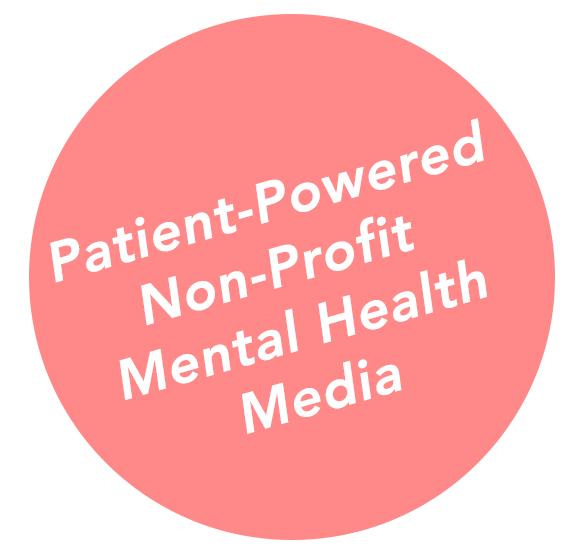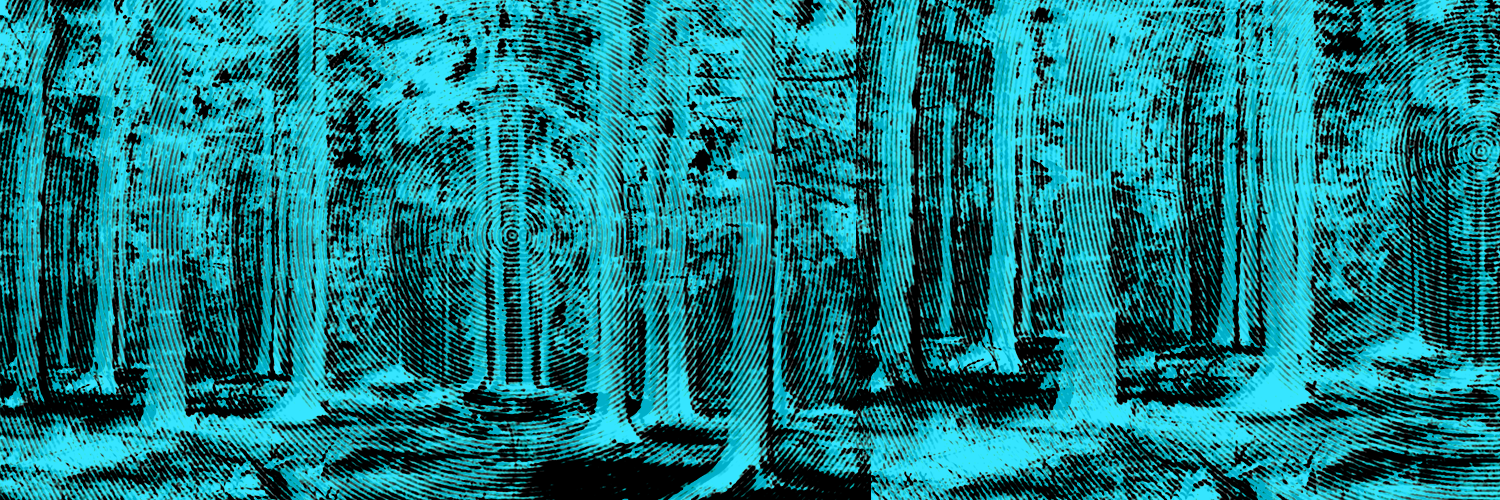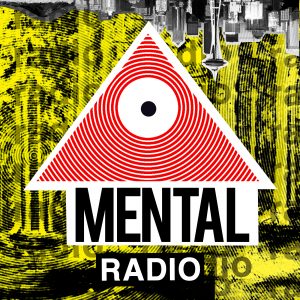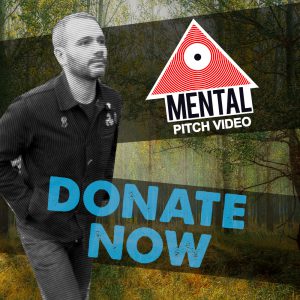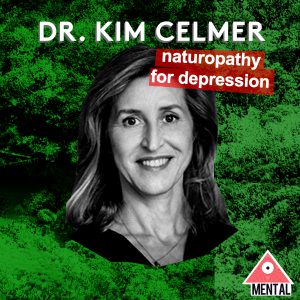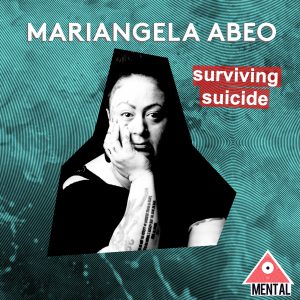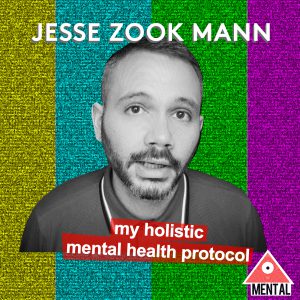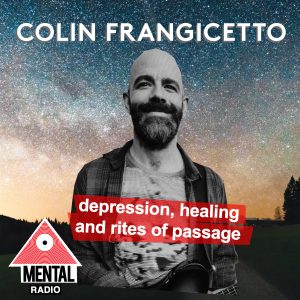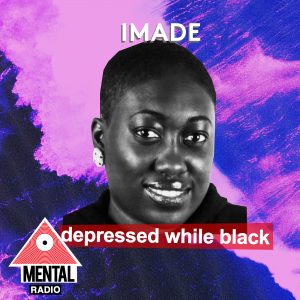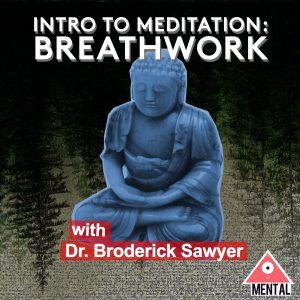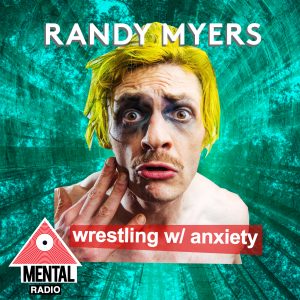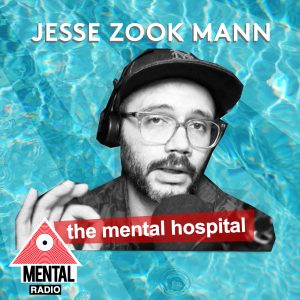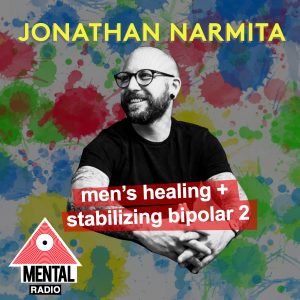What do you do after you have tried three dozen psych meds and ECT for bipolar depression and you still don’t get better? You look for any alternative. Thankfully after years of experimentation I found a protocol that works for me.
When I was first diagnosed with bipolar two disorder I had spent years on the road working 80 hour weeks shooting nationally televised television shows. I had recently completed shooting two films at the same time without much rest in between. I was eating a diet of vegan fast food, grabbing whatever I could on the way to the next location. My sleep habits were inconsistent at best and at worst, I would skip sleep all together.
In retrospect, seeing just how much I neglected my mind and body when I got sick, it makes sense that taking care of myself would make me feel better. But it took years of failed trials of psych meds that made my condition worse before I started searching for answers that exist outside of the box of the most traditional mental health practitioners had available to me.
If I have learned anything over my journey it is that every patient is extremely unique and one therapy that won’t do much for one person will cure the depression of another. Meds that some people find help helpful made me hallucinate, panic, and made my depression worse. Some can make one lifestyle change and feel completely better. Others, like me, have to change their lives in major ways in order to get relief.
From talking to so many patients it seems as if the cause of mood disorders are many, so are the solutions. This is a personal listicle of therapies and habits in no particular order that have helped me heal and keep me going in my daily life. And it’s not just me, even the National Alliance on Mental Illness lists complementary holistic treatments as part of their outreach efforts to educate patients about available treatments.
In my experience getting off meds and finding an approach without meds is what made my life manageable again. This list is not intended to be a cure, or advice to what you should do, but it is my hope that seeing what works for me, might be helpful in finding what works for you, if you are looking for alternative therapies. These are the things that I do.
1) Transcendental meditation
I was sold on T.M. after seeing a promotional video by the David Lynch Foundation for what it can do for “the most stressed populations in the world” including homelessness and incarcerated people.. I read the studies on their website that illustrate how it can help depression and anxiety. I’m glad I did because it is one of the most important things I do to keep my anxiety under control.
The first few months of doing T.M., I experienced huge relief. The pressure and stress bound up in my body and chest from a lifetime of chaos, unexpressed emotions and trauma began to release. I still have stress but now I have a way to empty stress stores. I would say that my anxiety is 60% better from doing this kind of meditation.
And while T.M. classes cost almost $1,000, The David Lynch Foundation offers deep scholarships to people in need, making this an accessible practice for more people than you might expect.
2) Amino acid therapy
I discovered amino acids, the building blocks of protein that help your body do all kinds of things like going to sleep and building muscles, slowly, one amino at a time. First my psychiatrist suggested l-glycine for benzodiazepine withdrawal and it helped. Then a sleep MD specialist prescribed l-theanine for disrupted sleep and it helped. And then I discovered I had Julia Ross’s book The Mood Cure, a workbook on how to use amino acids sitting on my shelf the whole time!
Digging into the book anew, I found two compounds that helped my life immensely – l-tyrosine for energy and mental alertness and tryptophan for sleep. Ross warns about tyrosine being too stimulating for bipolar patients, but I found that just ¼ of a dose that most people use was enough to get my energy up and greatly help my depression. Any more than that and I am up with hypomania all night.
3) Low dose lithium
This is a treatment I am no longer using but feel it belongs on this list because of how many stories I have found of patients who have found a nutritional dose of lithium helpful in managing moods.
4) 12 Step groups
I used to think 12 step groups were only for people with substance abuse problems but discovered in my journey that there are all kinds of fellowships that can be helpful for people with mood disorders and traumatic backgrounds.
Al-Anon: A group for people who are dealing with a relationship, friend or family member with an active problem with alcoholism, although you will find folks connected to people with all kinds of addictions
Nar-Anon: A similar group to Al-Anon but specifically for people dealing with someone else’s narcotic use
Adult Children of Alcoholics and Dysfunctional Families: Known as one of the most rigorous 12 step programs this group deals with healing trauma growing up in a dysfunctional home. It can be a great place for those who grew up with a parent with mental illness, or who have backgrounds of neglect or abuse
These meetings cost a donation of just a dollar or two, and really help me use things I learn in therapy. Hearing the stories of others who grew up like I did, and who were affected like I was, and how they healed, was and is extremely validating for me.
5) Lifting weights
It was impossible to work out during the depths of my depression and chronic illness, but as I started to feel better I started using kettlebell exercises to start getting in shape, and stay well. A recently published study showed that even casual amounts of time spent weight training with a moderate amount of weight can make a difference for those suffering from depression.
6) EMDR therapy
Eye Movement Desensitization and Reprocessing (EMDR) is a trauma therapy that uses eye movement to process old traumatic memories and emotions. It has been very powerful for me and has greatly reduced my anxiety. EMDR is generally covered by insurance and the majority of my therapy has been spent talking and processing the old memories of a traumatic childhood that are exposed during the light therapy.
7) A good naturopathic doctor
Finding a good naturopath was crucial for my healing. They aren’t all amazing, but the great ones can make a huge impact in someone’s everyday health. Creating a customized treatment plan based on my unique symptom cluster has been hugely beneficial, and my ND acts as a health coach, an educated person who I can run new ideas by before trying them.
8) Therapy Cat
Having a special, loving cat in my life makes all the difference in the world. Having a therapy cat means I am not alone. It means I have someone to greet in the morning. It means I have someone to nurture and love and put so much of what I have learned on my healing journey about nurturance, and acceptance into practice. My first therapy cat Squeaky passed away May 5th 2018. You can see a little of what our life was like in this memorial video I made for him.
9) Socializing
Resisting the urge to isolate is everything that keeps me from going into a complete black while I am depressed, and science tells us that a lot of people are made worse by isolation not just in their mental health, but in many aspects of health and disease. That is a big reason why I do so many things for my mental health and body – they get me out of the house, and if not talking to people, at least being around people. Just being around others, in the gym, at the therapist’s office, and 12 step groups on a routine helps my depression from becoming out of control, and keeps me connected to other people.
10) Eating unprocessed food and often
Our bodies digest food and isolate chemicals that make our brain and bodies work. Eating protein, healthy fats, and complex carbs often keeps our brains fueled with a steady stream of power to function as well as possible.
11) Making sleep an absolute priority
I used to play video games until bedtime on weekday evenings which would disrupt my restful sleep. I used to go out on weekends late into the night, which would make me hypomanic followed by a depressive crash. Now I go to bed at the same time every night. I wake up at the same time every day. I limit screen time before bed, and if I become hypomanic when it’s time to sleep, I take something to knock me out (right now I am using Tulsi powder). If I do have a night of interrupted sleep, I cancel most of my appointments for the next day so I can catch up. Making sure I sleep when I become hypomanic seems to be the biggest lynchpin in keeping my bipolar cycling at bay.
Listen to MENTAL RADIO on iTunes, Spotify, Google Podcasts, Stitcher or Deezer.

